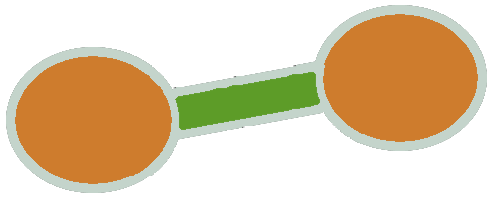Ninatoka
 concept
conceptNeutrophil
Neutrophils are immune cells with unusual biological features that furnish potent antimicrobial properties. These cells phagocytose and subsequently kill prokaryotic and eukaryotic organisms very efficiently. Importantly, it is not only their ability to attack microbes within a constrained intracellular compartment that endows neutrophils with antimicrobial function. They can unleash their effectors into the extracellular space, where, even post-mortem, their killing machinery can endure and remain functional. The antimicrobial activity of neutrophils must not be misconstrued as being microbe specific and should be viewed more generally as biotoxic. Outside of fighting infections, neutrophils can harness their noxious machinery in other contexts, like cancer. Inappropriate or dysregulated neutrophil activation damages the host and contributes to autoimmune and inflammatory disease. Here we review a number of topics related to neutrophil biology based on contemporary findings.
Ref:
Burn GL, Foti A, Marsman G, Patel DF, Zychlinsky A. The Neutrophil. Immunity. 2021 Jul 13;54(7):1377-1391. doi: 10.1016/j.immuni.2021.06.006. PMID: 34260886.
Join Ninatoka!!
NinatoKa's goal is to support you as a therapist in unravelling the illness pathway from symptoms to cause, and to help you detect potential interventions.
Go to Explore to start your discovery!
Go to Learn to scroll through newly added data.
Go to Contribute to contribute to the Ninatoka database.
You can rate content up or down and add comments if you agree or disagree.



